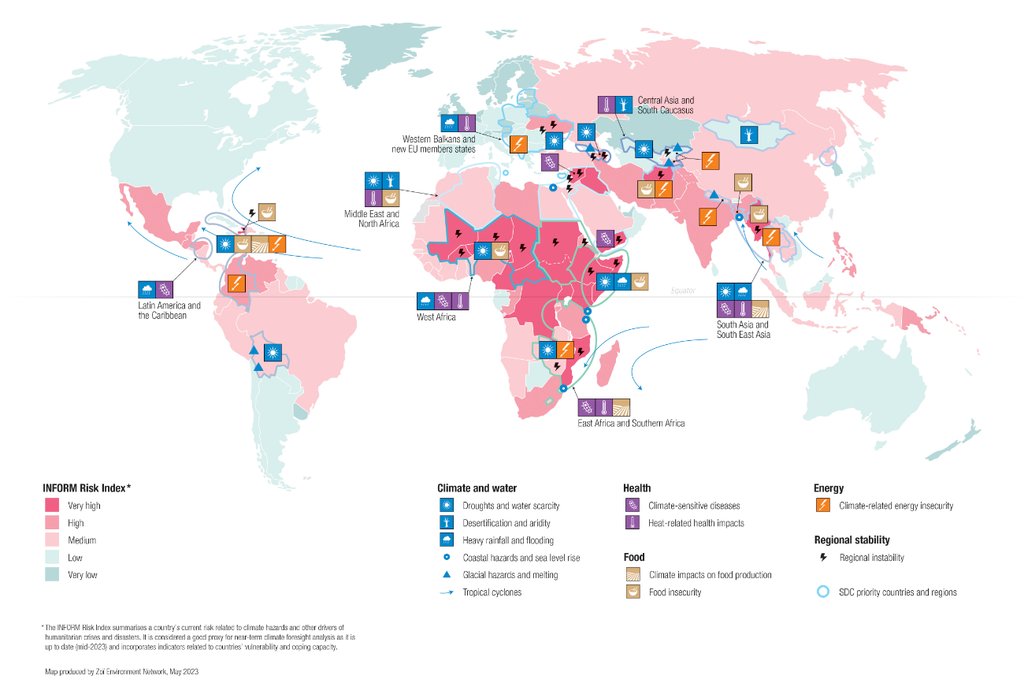Which climate-related risks must be anticipated by actors of development cooperation in the coming one to three years? For the third time, INFRAS has identified regional and global hotspots of climate risks and summarized key developments for the Swiss Agency for Development and Cooperation (SDC).

Whether it's food security, health, or energy supply: climate change and its direct and indirect impacts pose significant challenges for development cooperation. Commissioned by the Swiss Agency for Development and Cooperation (SDC), INFRAS has identified regional and global climate risk hotspots. The report, now revised and updated for the second time following its initial publication in 2020, clearly and concisely describes climate-related risks that actors of development cooperation need to anticipate in their programs in the short- to medium-term.
Clear factsheets on complex developments
The update of the SDC Climate Foresight Analysis for the year 2023 analyses past and ongoing developments and describes trends for the next one to three years. The report includes an overarching introduction and a series of factsheets. The factsheets are organized according to SDC's priority countries and regions, and break down complex developments related to direct and indirect impacts of climate risks in different thematic areas:
- Climate
- Regional stability and socio-economic development
- Water
- Food
- Energy
- Health
A call for systemic thinking
The report describes climate-related risks based on current extreme weather events and scientific evidence. Additionally, it draws on short- and medium-term forecasts of weather phenomena (such as El Niño) and climate change. However, non-climatic drivers of risk dominate the risk landscape in many regions. To address this, the SDC Climate Foresight Analysis analyses climate risks from a systemic perspective and incorporates a range of socio-economic indicators.
Climate-related risks also affect energy security
For the first time, climate-related risks in energy production, transmission, and demand were specifically included in the SDC Climate Foresight Analysis. The main reason for this is the war in Ukraine, which has affected energy supply in many world regions and brought the issue of energy insecurity more prominently onto the public agenda. Along with other findings from the report, INFRAS presented the most relevant developments and trends related to climate risks in energy systems to the global "Climate, Disaster Risk Reduction (DRR), and Environment" network of SDC in June 2023.
More information

